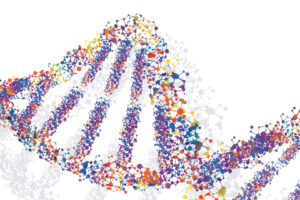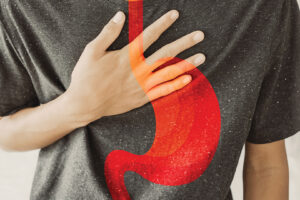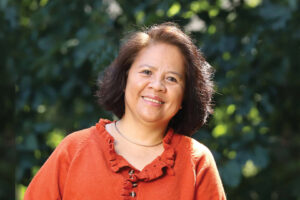Good nutrition is important for everyone at all stages of life but it’s especially important for patients before, during, and after treatment for cancer.
While it depends on the type of cancer and the type of treatment, potential side effects to cancer treatments can include dehydration, fatigue, vomiting, poor appetite, nausea, swallowing difficulties, mouth sores, dry mouth, constipation, and diarrhea.
If you have received a cancer diagnosis, strive to eat nutritious, balanced meals before, during, and after treatment. More specifically, it’s important to maintain or even increase your intake of protein, fats, carbohydrates, macronutrients, and micronutrients during this time to ensure that your body has the fuel it needs. Drinking lots of water is extremely important, too. Inadequate intake of water can cause dehydration. Many foods contain water, but you should aim to get 8 fluid ounces of water or more if you have diarrhea or are vomiting.
Ensuring Good Nutrition During Cancer Treatment
I advise my patients to start meal planning as soon as they know their cancer treatment plan. Because treatment may increase fatigue, purchasing and preparing easy-to-eat snacks and smaller, more frequent meals will make getting the proper nutrition a bit easier. Some food suggestions include:
- Fresh fruits and vegetables – Aim for 2 to 2.5 cups of fresh fruits and vegetables in a variety of colors each day to get important antioxidants, phytochemicals, vitamins, and fiber. Try a smoothie made with fresh fruit, vegetables, and low-fat yogurt in a blender.
- Fiber – Getting fiber is equally important, especially for those with colon cancer. There are two types of fiber: soluble and insoluble. Soluble fiber turns into a gel in water, while insoluble fiber is hard to digest and can irritate the intestinal lining during the digestion process. You can find fiber in fruit, vegetables, beans, legumes, and whole grains.
- Protein – Protein helps repair the body’s tissues and maintain the immune system. When your body doesn’t get the required amount of protein, your recovery time may be longer and your risk of developing an infection increases. Sources include lean cuts of meat, fish, poultry, eggs, and low-fat dairy products. Non-meat sources of protein include dried beans, lentils, and nut butters.
- High-calorie, high-protein snacks – Try gelatin or pudding made with evaporated milk to boost the amount of protein and number of calories; cheese and crackers; or hummus and vegetables.
Talk with your doctor if you’re having trouble swallowing, which can be an issue for patients with cancers of the neck or esophagus. Your doctor can recommend ways to get the nutrients that you need and prevent weight loss.
Foods that Fight Nausea
Unfortunately, nausea and vomiting are common side effects of most types of chemotherapy. Your physician may prescribe an anti-emetic for nausea. A bland diet of smaller meals can help settle your stomach and prevent dehydration. Here are some foods to try:
- Fruit smoothies
- Saltines or other non-flavored crackers
- Clear liquids served cold and sipped slowly
- Fruit popsicles
- High-calorie foods like puddings, ice cream, sherbet, yogurt, and milkshakes
- Apple juice
- Tea
- Clear broth or creamed soup for some added protein
- Cinnamon or ginger, including hard candy and ginger ale
- Gelatin made with a nutritional drink or evaporated milk
- Room-temperature foods
Other tips include avoiding fried, spicy, and sweet foods, making sure your room is well lit but not too hot or too cold, and going for a walk outside for fresh air and vitamin D on the days you feel up to it. Physical activity may help; speak with your physician about which activities are best for you. You may want to join a supervised exercise program through a hospital or treatment clinic, which can help you maintain or even improve your physical well-being, emotional well-being, and overall quality of life.
Foods to Avoid During Treatment
I encourage my patients to limit animal-sourced food, like milk and meats, particularly cured meats like bacon, pepperoni, or chorizo. You also should avoid salty or pickled foods during treatment. Research has found that eating large amounts of red and processed meats (bacon, hot dogs, deli meats) increases your risk of developing certain types of cancers. Some research also suggests that frying, broiling, or grilling at high temperatures can release chemicals that may increase the risk of developing some types of cancers (especially high-fat meats and poultry with skin).
Don’t be afraid to try foods that you think you don’t like, since your sense of taste changes as you age. And, your tastes will likely change during treatment. The American Cancer Society website includes a database of healthy recipes that you can try.
Planning ahead is essential. Talk with your cancer treatment team as soon as possible to understand the next steps in your treatment and how you can best plan for them. Ask your doctor to recommend a registered dietitian if you don’t already see one. A registered dietician can help you find nutritious foods that you can tolerate and will monitor how you are doing throughout treatment and adjust your dietary plan as needed.
Heenal Vora, RD, is a registered inpatient and outpatient clinical dietitian at CentraState Medical Center. She can be reached by calling 866-CENTRA7.





